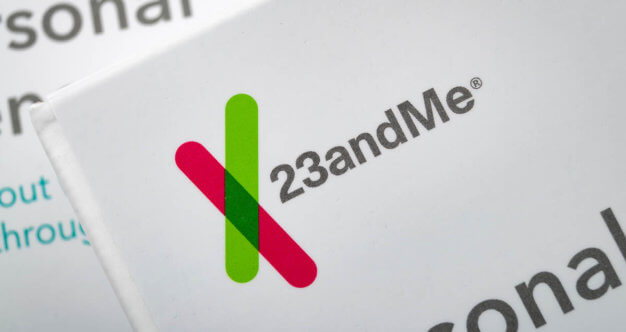In a new study, researchers found that popular 23andMe’s genetic test for a dangerous mutation associated with breast cancer isn’t reliable.
According to researchers, the test doesn’t catch the mutations for 90 percent of women. The study was presented at the American College of Medical Genetics and Genomics annual meeting, but it’s important to know that it hasn’t been peer reviewed and published yet. The mutation in question is called BRCA.
Read More“BRCA1 and BRCA2– each of those genes– have at least 1,000 different mutations that we know of that can cause an increased risk of cancer,” Ginsburg told us.
Dr. Ophira Ginsburg on the limitations of 23andMe testing
“So this test that’s now on the market only tests for three of these. And if you’re not from that community of Eastern-European Jews or other communities where these changes have been found, you may mistakenly believe that you’re not at risk. The test is negative. So I’m not at risk. And that would give you a false sense of reassurance, particularly if you still have a strong family history of cancer."
23andMe tests for three out of potentially thousands of variants that may lead to breast cancer.
The study involved more than 100,000 women who had breast cancer risk testing with Invitae. Out of these patients, 5,000 people were identified to have a gene variant that would lead to increased risk of breast cancer.
Within this group, researchers found that among Ashkenazi Jews, 81 percent had one of the three variants that 23andMe tests for. For those people, the test might be very useful. But outside of the Ashkenazi Jewish population, 93 percent carried variants that 23andMe would have failed to detect.
Dr. Elizabeth Comen on genetic testing for breast cancer and BRCA genetic mutations
“Women who are Ashkenazi Jewish may have an increased risk for BRCA1 or BRCA2 mutations, but those mutations can actually happen in any ethnicity,” says Dr. Elizabeth Comen, Medical Oncologist at Memorial Sloan Kettering Cancer Center. “So it’s really important that a doctor review a patient’s family history and all the factors that go into whether genetic testing may be appropriate.”
“And what we can now do in medical science for some patients is we do what’s called genetic sequencing, meaning we take the tumor, a piece of the tumor,” Dr. Comen continues, “and we look at all the genes that help make up the blueprint of that tumor and try to figure out, what are the mutations that evolved in that cancer, specifically to allow it to grow? And the reason why that’s important is it might make certain clinical trials appropriate for a patient.”
Learn more about SurvivorNet's rigorous medical review process.

